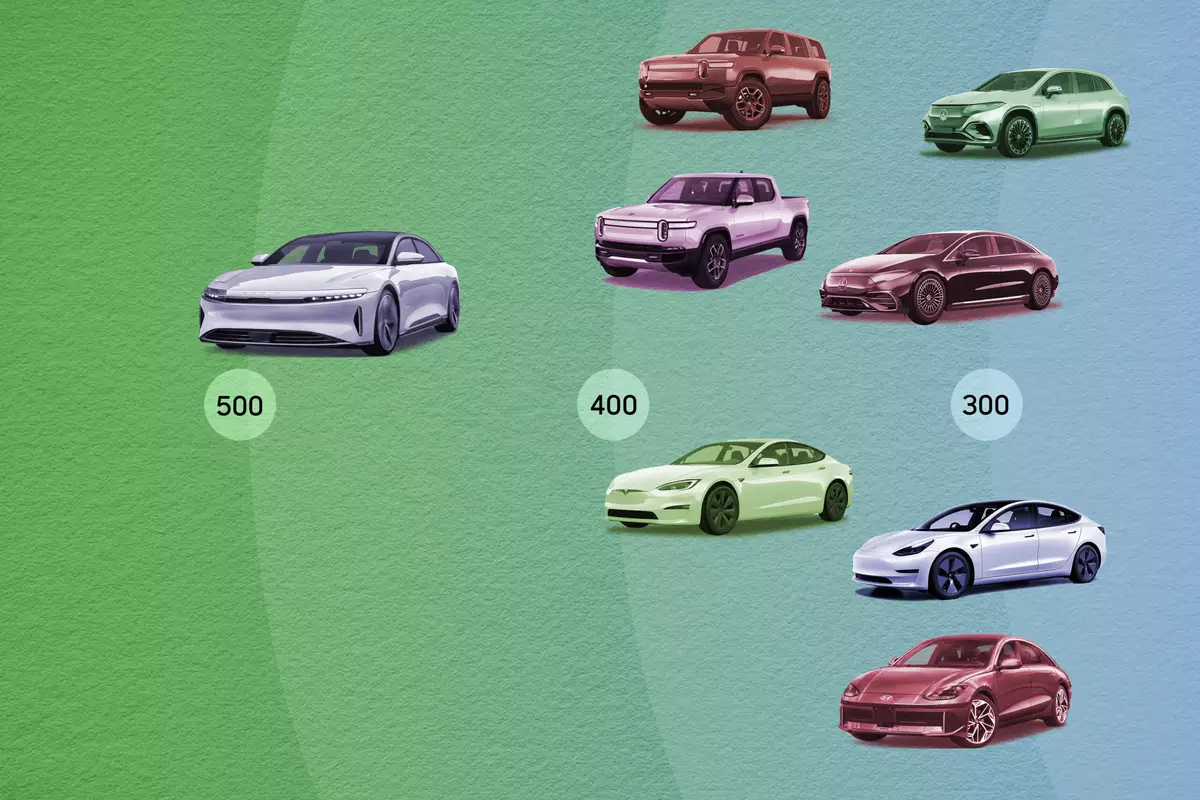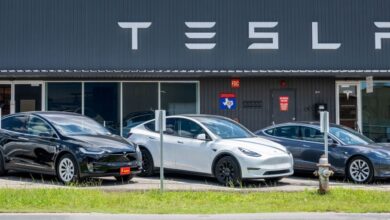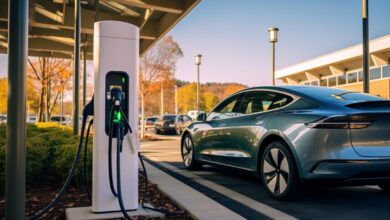7 EVs and Hybrid Cars That No Longer Qualify for a Tax Credit in 2024

Rules concerning federal tax credits for electric vehicles (EVs) are intended to provide an incentive for manufacturers to strengthen America’s supply chains by building and sourcing materials for their vehicles in the U.S. rather than overseas. However, as an increasing number of automakers compete for a slice of the EV market, the list of EVs eligible for a federal tax credit is shrinking.
Check Out: 6 Best New Cars for the Upper Middle Class
Read Next: 6 Genius Things All Wealthy People Do With Their Money
Under President Biden’s Inflation Reduction Act of 2022, fully electric, plug-in hybrid and fuel cell electric vehicles purchased new in 2023 (or after) may be eligible for a federal income tax credit of up to $7,500. As of Jan. 1, 2024, EV tax credits up to $7,500 for new clean vehicles and up to $4,000 for used EVs can now be applied at the point of sale — and buyers can receive full credits from dealers to put toward a down payment.
Sponsored: Credit card debt keeping you up at night? Find out if you can reduce your debt with these 3 steps
A Quick Eligibility Review
There are other changes that came into effect on Jan. 1. Already, certain percentages of a vehicle’s battery and its critical materials must be assembled or processed in North America. Now, a tax credit-eligible vehicle may not contain any battery components that come from a designated “foreign entity of concern” (FEOC). Beginning in 2025, an eligible clean vehicle may not contain any critical minerals that were extracted, processed or recycled by a FEOC, according to the U.S. Department of Treasury.
Some rules have changed since they were first introduced. For example, manufacturers previously lost eligibility for the tax credit once they sold 200,000 qualifying vehicles. This affected brands like Tesla, General Motors (GM) and Toyota, meaning that many of their EVs no longer qualified for the tax credit.
The Inflation Reduction Act of 2022 introduced price caps for qualifying EVs and hybrids, which could disqualify higher-end models. As of 2024, these caps are $55,000 for sedans and $80,000 for SUVs, trucks and vans.
To qualify for the EV tax credit, you must buy the vehicle for your own use and use it primarily in the U.S. The vehicle’s manufacturer suggested retail price (MSRP) can’t exceed $80,000 for vans, sport utility vehicles and pickup trucks and $55,000 for other vehicles.
Additionally, the buyer’s modified adjusted gross income (AGI) may not exceed $300,000 for married couples filing jointly, $225,000 for heads of households and $150,000 for all other filers.
Learn More: These 12 Cars Can Save You Thousands of Dollars in Repair and Maintenance Costs
7 EVs and Hybrid Cars That No Longer Qualify for a Tax Credit in 2024
According to CBT News, some automakers that continue to use Chinese-made batteries in their models lost tax credit eligibility in 2024. Moving forward, if a manufacturer chooses different suppliers or assembly locations, “some vehicles may qualify while others may not, even if they’re the same make and model,” per Consumer Reports. Here are seven cars that lost their federal EV tax credit qualification this year.
EV tax credit casualties include the Tesla Model 3 Rear Wheel Drive and Long Range trims. The Model 3 Performance still qualifies, as do Tesla’s Model X Long Range, Model Y All-Wheel Drive, Model Y Performance and Model Y Rear-Wheel Drive.
-
Cadillac Lyriq
-
Chevrolet Blazer EV
Two General Motors (GM) vehicles are temporarily no longer eligible for tax credits in 2024, but GM vowed to provide the equivalent credit amount on purchase. “After reviewing Treasury’s long-awaited proposed guidance, we believe the Cadillac Lyriq and Chevrolet Blazer EV will temporarily lose eligibility for the clean vehicle credit on January 1, 2024, because of separators and electrolytes,” GM said in a statement.
As Reuters reported in February, the Lyriq is again eligible for the $7,500 EV tax credit after GM changed its battery source to address two minor components. The all-electric midsize Blazer SUV can now be purchased with a $7,500 tax rebate, too.
Back in December, Ford sent a notice to dealers that read, “While we are awaiting finalized requirements from the government, based on current information, it is unlikely that any Mustang Mach-Es will qualify for the Federal Tax Credit beginning on 1/1/24.” It is suspected that the Mach-E’s ineligibility is due to Ford using LFP batteries from CATL, a Chinese battery maker, per CarsDirect.
Although the $7,500 tax credit for Ford’s F-150 Lightning will remain, along with the $3,750 incentive for the plug-in hybrid Ford Escape and Lincoln Corsair Grand Touring, the incentive will no longer be available for the plug-in hybrid Lincoln Aviator Grand Touring.
Current incentives of up to $7,500 in tax credits for select electric cars, plug-in hybrids and hydrogen-powered vehicles that meet government qualifications continue to be updated by the Inflation Reduction Act. The U.S. Department of Energy’s Office of Energy Efficiency & Renewable Energy has an up-to-date list of qualifying vehicles.
More From GOBankingRates
This article originally appeared on GOBankingRates.com: 7 EVs and Hybrid Cars That No Longer Qualify for a Tax Credit in 2024



